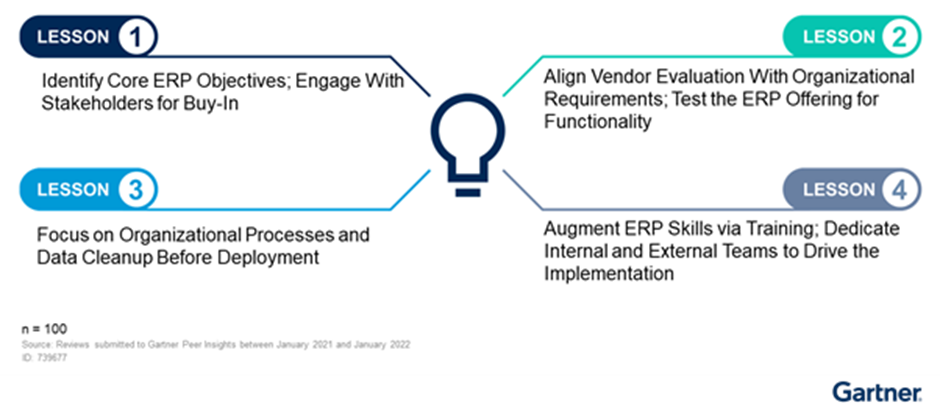
5 Lessons You Must Consider When Implementing Your Cloud ERP
What key information should you know before implementing a Cloud ERP (Enterprise Resource Planning) within your organisation? Step5 reveals five key lessons you must consider that will ensure transformational success.
Over the past five years the eruption of Cloud based services and offerings have dominated the ERP marketplace. Vendors and suppliers have accelerated their go-to-market products and offerings to provide transformative, innovative digital solutions. However, there are crucial factors that must be considered and clearly defined before your organisation embarks on its Cloud ERP journey: Vision, Strategy and Objectives. It’s typical for organisations to get caught up in the vast amounts of information available and lose focus on what they set out to achieve, often leading to delays, spiralling costs, and failed initiatives.
So, what are some of the lessons learnt?
Following research collated from clients’ first-hand experiences, Gartner outlines four lessons organisations should consider to ensure a successful Cloud ERP implementation:
Lesson 1: Identify Core ERP Objectives; Engage With Stakeholders for Buy-In
Lesson 2: Align Vendor Evaluation With Organizational Requirements; Test the ERP Offering for Functionality
Lesson 3: Focus on Organizational Processes and Data Cleanup Before Deployment
Lesson 4: Augment ERP Skills via Training; Dedicate Internal and External Teams to Drive the Implementation

In addition to these lessons, Step5’s extensive experience in implementing and migrating large-scale customer Cloud ERPs has led to the identification of a fifth lesson:
Step5’s Lesson 5: Don’t Underestimate Business Change
Critical to any transformation, it’s imperative that Business Change is identified and communicated as early as possible. Standardising the way in which your organisation operates allows you to reimagine a business which adopts industry best practices and the efficiencies from within the ERP platform. This requires a joint understanding and acceptance from both the sponsor and operational stakeholders of what these changes are and how they improve the delivery of services for the business. Just telling or informing the various stakeholders involved that things will ‘change’ isn’t enough.
Step5 Cloud ERP Practice Director Khadam Rafique comments: “We often see good articulation of the Vision however poor understanding of the Business Change and Data Management (quality and structure) required to support and implement the Vision. Subsequently, organisations become too Technology led into an ERP deployment which, from our experience, tends to be a contributing factor to costly delays and rework. At Step5, we support our customers by ensuring changes to the business processes and the way the business operates are captured and involve all stakeholders identified within each of the process areas. We’ve found that in most cases where processes span multiple business areas, which aren’t impacted end-to-end cause costly delays and rework. One of the most significant factors related to failed ERP implementations is that re-engineered processes aren’t necessarily impact assessed thoroughly or involve the right subject matter expert validation.”
Step5’s positioning within this ever-changing marketplace is unique. Our services go hand in hand with supporting customers from the outset, mobilising the right skills, expertise and governance early within the customer journey to the Cloud. Through our experience of running and supporting large-scale Digital Transformation programmes we have developed and built a capability to ensure success.


